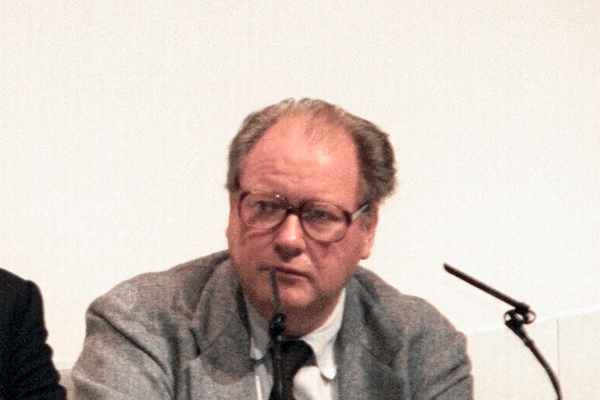Lord McAlpine has broken cover this morning after the Guardian named him in its story claiming the peer is a victim of mistaken identity in the swirling allegations about a Tory paedophile. He has released a lengthy statement, which you can read here, denying the ‘wholly false and seriously defamatory’ claims, and adding that he never visited the children’s home where the abuse is alleged to have taken place:
‘The facts are, however, that I have been to Wrexham only once. I visited the local Constituency Conservative Association in my capacity as Deputy Chairman. I was accompanied on this trip, at all times, by Stuart Newman, a Central Office Agent. We visited Mary Bell, a distant relative of mine and close friend of Stuart Newman. We did not stay the night in Wrexham. I have never been to the children’s home in Wrexham, nor have I ever visited any children’s home, reform school or any other institution of a similar nature. I have never stayed in a hotel in or near Wrexham, I did not own a Rolls Royce, have never had a “Gold card” or “Harrods card” and never wear aftershave, all of which have been alleged. I did not sexually abuse Mr Messham or any other residents of the children’s home in Wrexham. Stuart Newman is now dead but my solicitors are endeavouring to locate a senior secretary who worked at Central Office at the time to see if she can remember the precise date I visited that Association.’
The peer writes that he decided to speak out because ‘it has become apparent to me that a number of ill- or uninformed commentators have been using blogs and other internet media outlets to accuse me of being the senior Conservative figure from the days of Margaret Thatcher’s leadership who is guilty of sexually abusing young residents of a children’s home in Wrexham, North Wales in the 1970s and 1980s’.
Until yesterday, those swirling rumours were confined to social media and blogs, but they were followed by Philip Schofield triumphantly telling the Prime Minister on This Morning that it ‘took me about three minutes last night to continually find a list of the same names’ on the internet, as though he were handing over a bloodstained murder weapon in a court case or some other hard piece of evidence other than a list of names cobbled together from a string of tweets. Other names continue to circulate, and as James blogged yesterday, the reluctance of other journalists to name names without sufficient evidence, suspicion is cast on whole groups of people.
Though he wishes to ‘mitigate, if only to some small extent, the damage to my reputation’, McAlpine continues to threaten legal action, saying:
‘I conclude by reminding those who have defamed me or who intend to do so that in making this statement I am by no means giving up my right to seek redress at law and repeat that I expressly reserve my rights to take all such steps as I and my solicitors consider necessary to protect my interests.’
Those holding a trial in the court of public opinion would find the courts of law of this country rather less credulous. Unlike Philip Schofield, in court of law, there is a burden of proof, not a burden of tweets or a trending topic. In fact, libel cases require a defendant to produce the evidence that led to them making the allegedly defamatory statement, rather than the prosecution producing the evidence. Even if the statement is true, which in this case McAlpine says it is not, if a defendant cannot prove that the substance of the claim is true, they can still be found guilty.







Comments